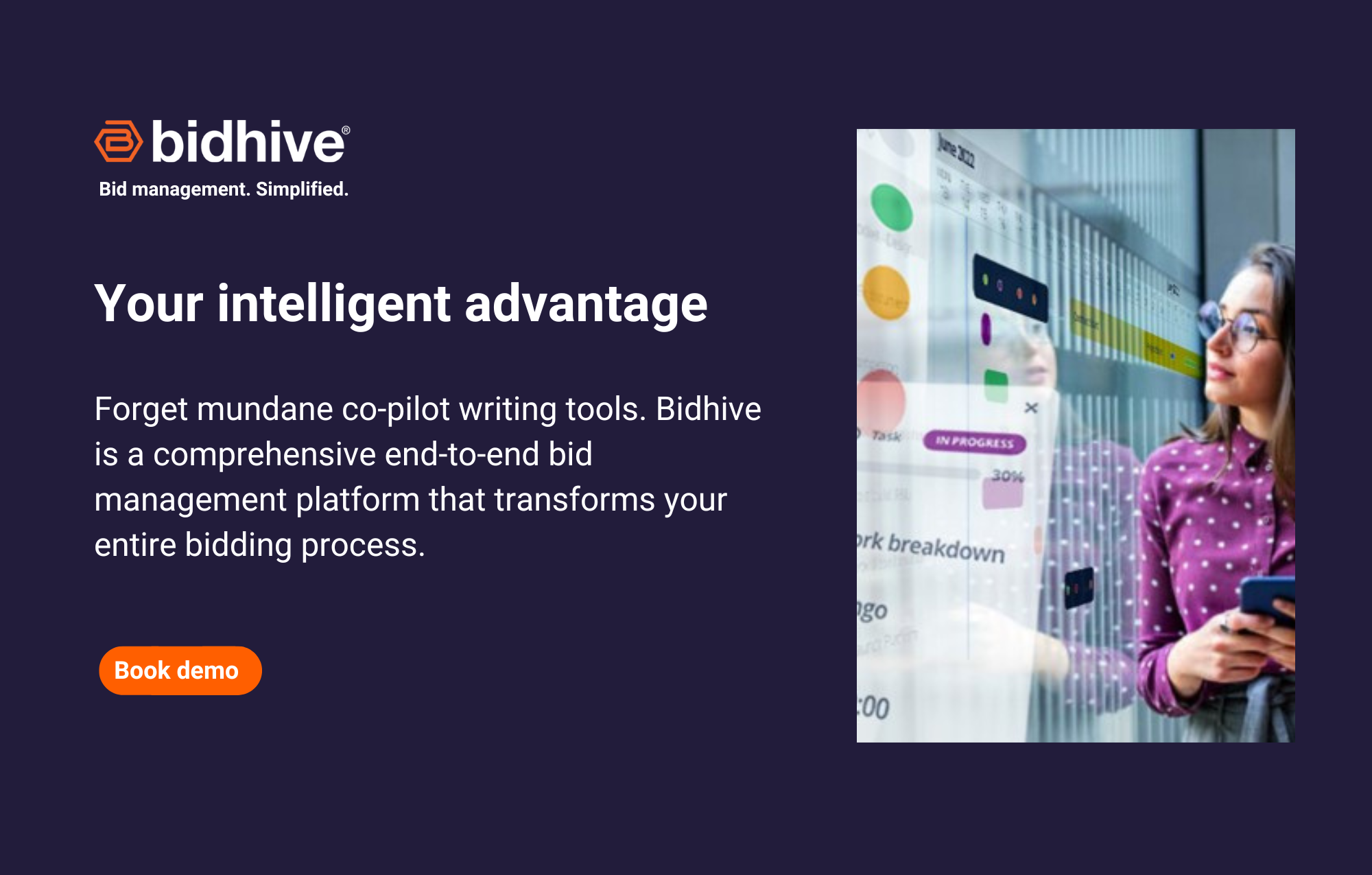There’s a pervasive myth in business development that persists: proposal writing is the same as bidding. This misconception can lead organisations astray, misdirecting their efforts – including hiring and digital adoption strategies – on focusing narrowly on the written proposal rather than embracing the holistic nature of the bidding process. The bidding process is so much more than just putting words on paper; it is a strategic lever for organisational growth, capability, and market share.
The broader scope of the bidding process
Qualification: Ensuring high win probability
Successful bidding starts long before pen meets paper. The initial bidding phase involves qualification, ensuring that your organisation only bids on projects (or contracts) where there is a high probability of success. Pursuing every available opportunity without a strategic approach can drain resources and lower team morale. A well-structured qualification process aligns your efforts with your strategic plan, ensuring that your bids are focused, relevant, and winnable.
The Bid/No Bid decision
One of the crucial steps in the bidding process – particularly large value, complex bids – is the bid/no bid decision. Companies have lost contracts and worse – fallen into insolvency – due to poorly made decisions in this phase. It should never be underestimated just how critical this step is to an organisation’s success and potential failure. Some bid too low just to secure the contract, leading to financial strain. Others take on projects that are misaligned with their core capabilities, resulting in the dreaded three Ds: debt, dispute, or delay. Making informed bid/no bid decisions is vital for not just winning contracts but ensuring they are profitable and strategically beneficial.
Beyond winning: successful delivery
Strategic alignment and fit: Winning a bid is only half the battle; the other half is delivering successfully. This requires a strategic fit between the project and your organisation’s capabilities. It’s about more than just compliance; it’s about ensuring that the project aligns with your organisation’s long-term goals and that your team is fully committed to seeing it through. This synergy boosts morale, retains your workforce, and helps grow your expertise.
Learning and improving in bid management
Customer feedback for continuous improvement: Bidding is also about listening to your customers and incorporating their feedback into your processes. Post-submission activities, whether the bid is successful or not, offer valuable insights. These lessons learned help refine your approach for future bids, ensuring continuous improvement and a higher success rate over time.
Process management and skill celebration: Managing the bidding process effectively involves celebrating the diverse skills your team brings to the table. From project managers to technical experts, each plays a crucial role in devising the strategy and crafting a winning proposal. Recognising and utilising these skills fosters a collaborative environment and drives organisational success.
Intelligence and capacity matching
Market and competitive intelligence: Utilising intelligence about the market, your customers, and your competitors is key in crafting a winning bid. This involves more than just gathering data; it’s about analysing and applying this information strategically. Matching your organisation’s capacity with its capabilities ensures that each part of the process runs smoothly, avoiding bottlenecks and enhancing efficiency.
Process visibility and single source of truth
Visibility and reporting: Having clear visibility of the bidding process is paramount. This includes running to timelines and milestones and ensuring that all team members have access to shared knowledge. Reliable data, whether it be market intelligence or reusable content, is crucial. This transparency allows for clear reporting of status, progress, and outcomes, both to teams on the ground and organisational leaders.
The role of technology
Streamlining with a single system: Ultimately, having a single system to manage the entire bidding process keeps things accountable, transparent, and streamlined. Platforms like Bidhive enable organisations to consolidate knowledge, drive performance, and track outcomes effectively. By leveraging such technology, companies can ensure that every aspect of the bid process is optimally managed.
Bidding as a strategic lever
Bidding is undeniably more than just writing. It is a strategic function that, when executed properly, can grow an organisation’s people, capabilities, bottom line, and market share. By embracing a holistic approach that includes qualification, strategic decision-making, delivery, continuous improvement, and intelligence, organisations can transform their bidding process into a powerful engine for growth.
A well-integrated system like Bidhive offers the structure and support necessary for this transformation. By breaking down the myth that writing equals bidding, companies can realise the true potential of their bid management processes and pave the way for sustained success.
Request a demo today to learn more about how Bidhive streamlines bid and response management. You can also read more blog articles for practical advice on running a successful bidding function.


